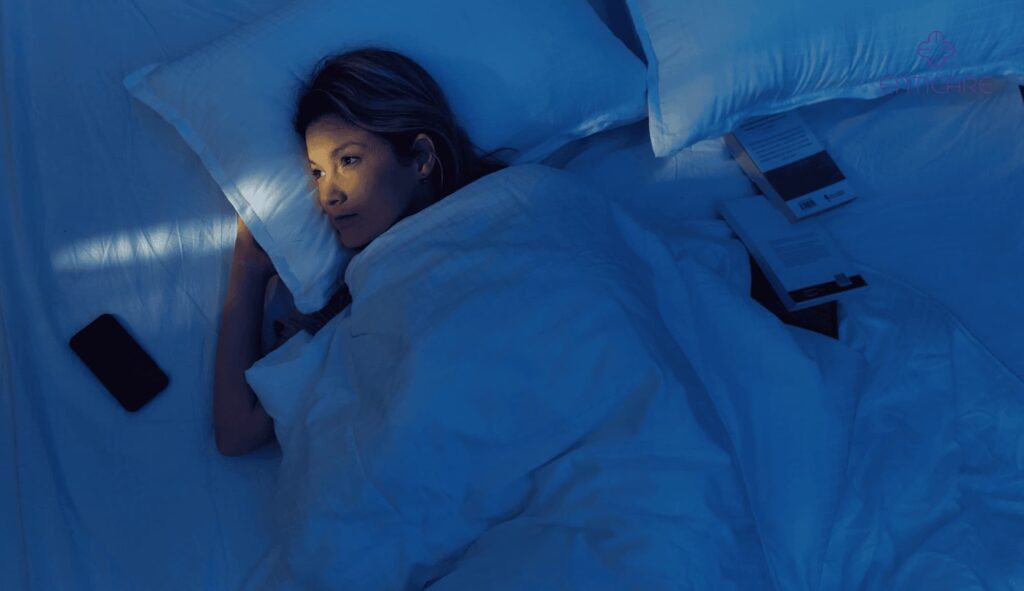Living with insomnia is challenging. Maybe you’ve been tossing and turning at night while going through a major life transition or other events that have brought on chronic stress. Perhaps you’ve been struggling with anxiety, depression, or another mental health concern, and insomnia is one of your most frustrating symptoms. You might also be struggling with lifestyle habits that could be keeping you up at night.
Sleep is a necessity. Coping with a lack of a sleep on a daily basis can make it hard to keep up with your responsibilities. Emotionally, you might feel like breaking down. Figuring out what’s causing your insomnia is the first step to successfully tackling this issue. Here are a few factors that can cause or contribute to insomnia.
Lifestyle Factors
A lack of exercise, excess caffeine, alcohol, and other lifestyle habits can get in the way of a good night’s sleep. If you don’t get much physical movement in your day, you may not be very tired at night. As a result, you may find yourself lying awake and staring at the ceiling, waiting for the hours to pass.
If you tend to drink caffeine throughout the afternoon, your high energy can turn into a frustrating insomnia cycle. You stay up late, so you’re tired during the day. To cope, you reach for another cup of coffee or an energy drink. Drinking alcohol before bed can also keep you up. Shifting these lifestyle habits can lead to dramatic improvements in your sleep schedule.
Physical Health Issues
Sometimes, insomnia is linked to physical health issues. For example, if you’re dealing with chronic pain that you haven’t been able to find relief for, you might have difficult getting comfortable at night. Other conditions, like acid reflux, can make it hard to simply lie down and relax. In these circumstances, it’s best to seek professional help from a doctor to address the physical symptoms that are keeping sleep out of your reach.
Mental Health Conditions
People who live with anxiety often have a rough time falling asleep at night. Your mind might be racing every time you turn off the light. Instead of dozing off, you stay awake, imagining scenarios that make you nervous or worrying about minor mistakes you made during the day. Even when you manage to fall asleep, you might be prone to waking up throughout the night.
If you’re dealing with depression, you might ruminate on persistent, negative thoughts that won’t leave your mind. Even when you try to relax, your mind turns back to your struggles with low self-worth, leaving you awake. Talking to a therapist about your symptoms, and adjusting your evening routines, can help with these issues.
Past Trauma
Untreated trauma can lead to hypervigilance. If you’ve ever experienced trauma, especially trauma that posed a threat to your physical safety, it can be difficult to feel truly “safe.” Even if it was years ago, and you’re in a comfortable, secure home, that genuine sense of safety can be elusive. At night, the darkness can feel dangerous. Seeking counselling in Victoria BC for post-traumatic stress disorder (PTSD) can help you regain comfort in your surroundings.
Screen Time
Do you have a tendency to stay up late scrolling? This habit can be very disruptive to your circadian rhythm. You may want to try setting screen time limits, or putting your phone somewhere outside of your room at night. Using a traditional alarm clock instead of your phone can also be helpful.
–
If you’re ready to seek help for insomnia, contact our practice to learn more about how anxiety therapy can help you address the root cause(s) of this condition.







